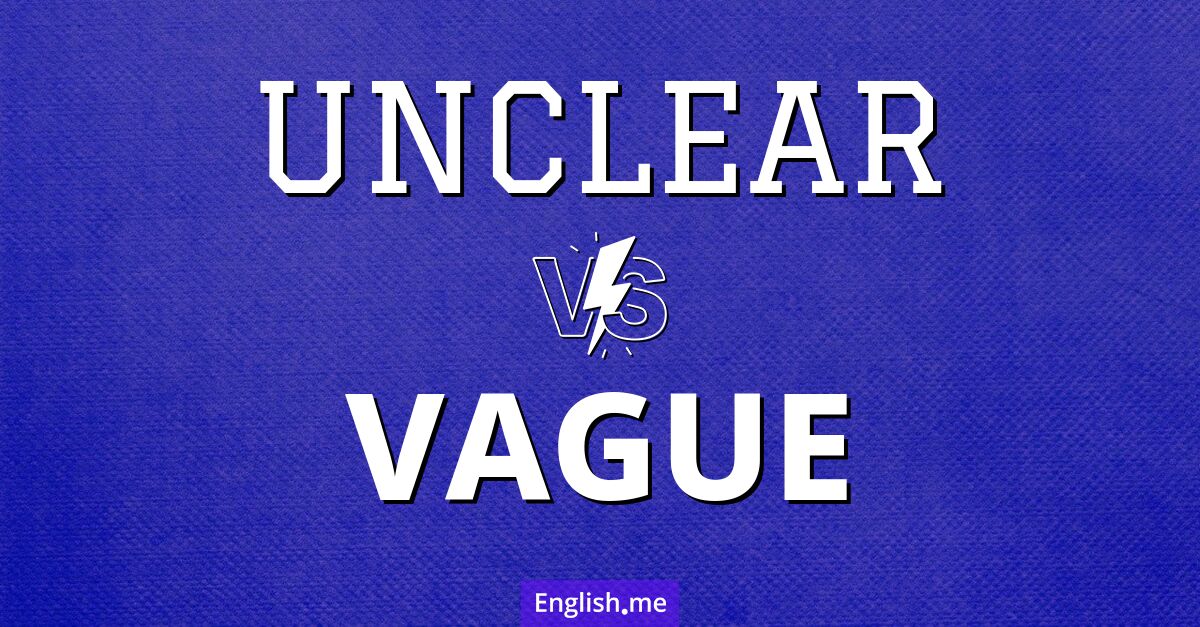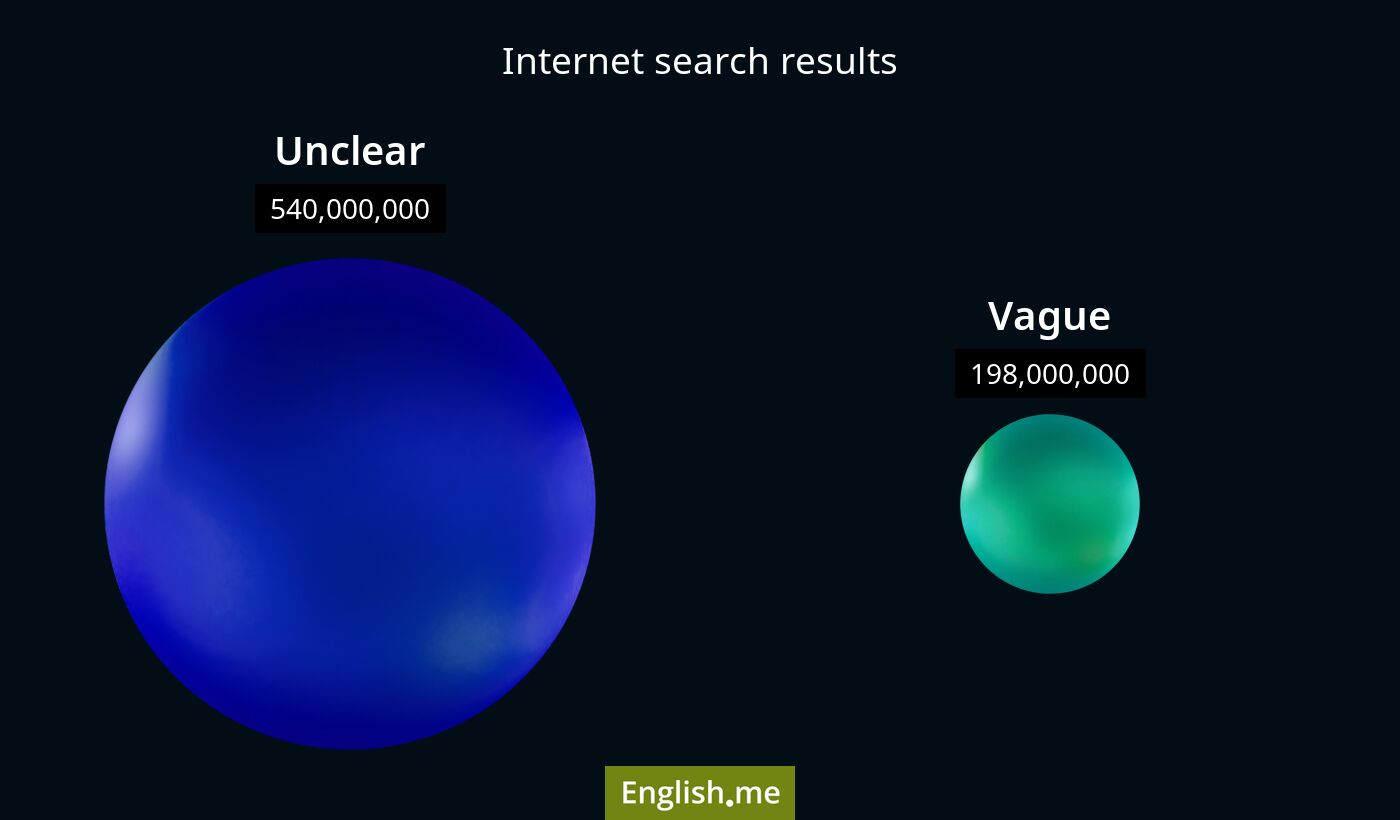"Unclear" vs. "vague": distinct shades of ambiguity
Reviewed and edited by  Anwar Kareem 21/10/2024, 16:52
Anwar Kareem 21/10/2024, 16:52
English.me team member

 What is similar?
What is similar?
Both "unclear" and "vague" describe something that is not clearly or precisely defined, expressed, or understood. They can both be used to describe lack of clarity in communication or understanding.
 What is different?
What is different?
"Unclear" often implies confusion or lack of clarity in understanding or expression, while "vague" suggests a lack of precision or specific details. "Unclear" is more likely to refer to understanding or interpretation, whereas "vague" often refers to the expression itself being imprecise.
 Which one is more common?
Which one is more common?

 Examples of usage
Examples of usage
Unclear- The teacher's instructions were unclear, so the students were confused about the assignment.
- It's unclear whether the event will be held this weekend or postponed.
- Her explanation was unclear, leaving everyone baffled.
- His answer was so vague that it didn't really address the question.
- The contract language was vague and open to interpretation.
- She gave a vague description of the suspect, making it hard for the police to identify him.

 English
English español
español française
française italiano
italiano deutsche
deutsche 日本語
日本語 polski
polski česky
česky svenska
svenska Türkçe
Türkçe Nederlands
Nederlands